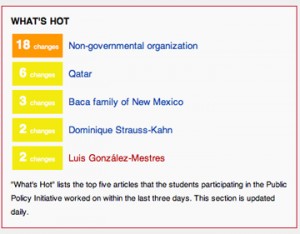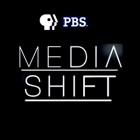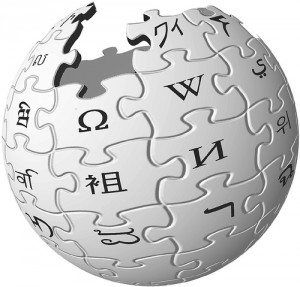And although technically, content can be created by anyone with an online account, the pattern of participation is admittedly skewed. According to Barry Newstead, the foundation's chief global development officer, "Eighty percent of our page views are from the Global North, and 83 percent of our edits." The English language Wikipedia's content and participation far outstrip those for its 270 other languages, especially non-Western. Of the active contributors, between 80 and 85 percent are male, and half are under 22. Furthermore, participation has plateaued (and even declined) over the last few years, settling in at somewhere between 80,000 and 100,000 active editors per month in all languages.
What are the obstacles to growth? First of all, "Wikipedian" culture is known for its contentious behavior, especially toward newcomers who haven't mastered the arcane style and coding. One result is that the content has become skewed toward geek topics, featuring state-of-the-art articles on technology, science fiction and military history, with more erratic offerings in the humanities and social sciences.
Straightening a Skewed Pattern of Participation
In early July, the Wikimedia Foundation renewed its efforts to improve the balance by holding its first Higher Education Summit as part of the Public Policy Initiative. According to the foundation leadership, the goals of the year-old project are to:
• bring in more quality content in underserved fields, starting with public policy;
• narrow the gender gap by recruiting increased female participation;
• improve diversity of contributors, and
• make the initiation process more user-friendly.
Backed by a new strategic plan and a $1.2 million grant from the Stanton Foundation, the Wikipedia Public Policy Initiative was born. The foundation decided that the natural focal point for the effort was academia. Colleges and universities were, after all, the traditional centers of learning -- and it made sense to look to students who were researching and writing papers as potential contributors of content.
Mentoring Professors and Students
The missing link was the Wikipedia knowledge. This was addressed by the creation of a cohort of Wikipedia "ambassadors" to coach and mentor professors and students through the wickets. Fifty-four campus ambassadors were selected over 2010-2011, charged with offering on-site support in classroom and personal tutorial settings.
These were often students with an extensive (and successful) record of creating and editing Wikipedia content. In other cases, they were university librarians, tech support, and other staff who took on the challenge as part of their classroom support services. (At the summit, Sue Gardner, director of the Wikimedia Foundation, proudly pointed out that almost half of the campus ambassadors are female.) The campus ambassadors were complemented by 91 online ambassadors, experienced Wikipedians who offer support to students in any school.
The United States was divided into 10 regions, each assigned a regional ambassador. Professors from 24 colleges and universities signed up as inaugural Wikipedia Teaching Fellows to participate. In return, the professors made a commitment to assigning Wikipedia content creation as part of their course requirements, and to stage the assignments over the course of the semester, to allow for an editorial learning curve.
By coincidence, I had created an unwitting control group for this effort. Last fall I assigned my Media & Society class at Bard College to write or edit a Wikipedia entry, unaware that there was a Wikimedia program for classroom support. I had a few Wikipedia edits under my belt, but I was unprepared for my students' struggles with Wikipedia policies on issues such as notability, verifiability and sourcing. These policies are highly specific, not always intuitive, and don't necessarily mirror academic practice.

My international students writing on foreign subjects had far more trouble than my U.S. students in publishing their articles, even if they were of comparable quality (partly, I believe, because it's harder to provide approved citations for local information about countries such as Afghanistan and Burma). I was also remiss in not directing my students toward the sandbox to develop their articles before posting them -- leading to some swift and merciless deletions.
For many of us, the Higher Education Summit was a welcome opportunity to meet campus and online ambassadors and to hear how fellow professors worked with the project in the classroom. I was surprised to learn that while some of the professors were experienced Wikipedians, many of them had little editing experience with the platform. This was not regarded as a problem. The program was structured to task the ambassadors with Wikipedia skills, allowing professors to focus on shaping syllabi and course content. (The summit's invitees included professors of law, anthropology, political science, and literature.)
At the same time, there are many signs that the Wikimedia Foundation is eager to make the editing process more user-friendly. It has been conducting usability studies to see where the bumps are. Wikipedia has been expanding its live help and a rich trove of learning materials for newbies. These resources are scattered across the Wikipedia terrain and not easy to locate, but the foundation is taking active steps to both build out and codify the materials. It's also sponsoring some friendly competition with a leaderboard to monitor which classes are posting the most contributions over the semester, as well as a "What's Hot" list of most edited articles by students.
The Wikimedia Foundation states that over the next five years it hopes to increase the number of readers to a billion, and the percentage of editors in the Global South to 37 percent. The international initiative is starting with Brazil, India and the Middle East/North Africa, which have already begun to receive advance guards of campus and online ambassadors. (The summit included academics from Brazil, India, Germany, the U.K. and Canada, as well as the U.S.)
The Wikimedia Foundation's Newstead told the summit attendees that the organization is still struggling with the challenge of adapting to mobile platforms, the bridgehead for online media in much of the world. "At this point you can't edit on mobile; it's read-only," he reported. "Most people who move to mobile stop surfing the web. They just surf apps."
Whatever the challenges, the Wikipedia ambassadors are recruiting a new generation of professors and students to carry the vision forward. There are all kinds of creative challenges to adapting classroom assignments to the mission. Students like publishing their classwork online, but express frustration at team members who don't pull their weight. Professors enjoy the classroom enthusiasm, but struggle with the mechanics of grading collaborative writing projects and articles that are edited by a broader community. Nonetheless, there's every indication that the Wikimedia Foundation's experiment in higher education will take Wikipedia to another stage of its wildly unpredictable ride.
Anne Nelson is an educator, consultant and author in the field of international media strategy. She created and teaches New Media and Development Communications at Columbia's School of International and Public Affairs (SIPA). She consults on media, education and philanthropy for Anthony Knerr & Associates. Her most recent book is Red Orchestra. She tweets as @anelsona, was a 2005 Guggenheim Fellow, and is a member of the Council on Foreign Relations.
 This story was originally published by PBS MediaShift, covering the intersection of media and technology. Follow @PBSMediaShift for Twitter updates, or join us on Facebook.
This story was originally published by PBS MediaShift, covering the intersection of media and technology. Follow @PBSMediaShift for Twitter updates, or join us on Facebook.



